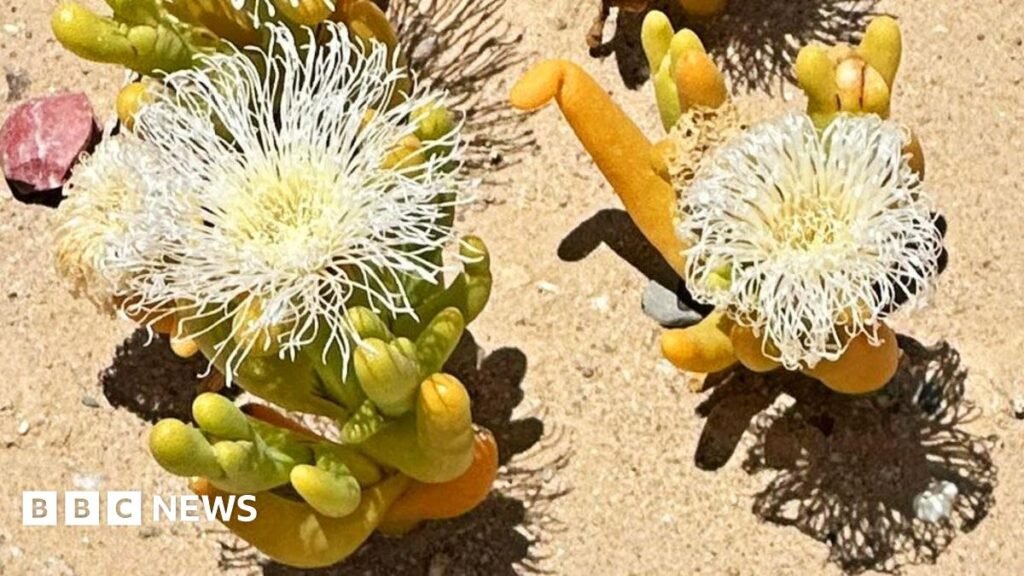A biodiversity hotspot in a remote part of South Africa has become a hub for illegal trade in protected plant species, with organized crime groups exploiting foreign demand.
“They didn’t just steal our land or our plants, they also stole our heritage,” a rancher angrily tells the BBC, expressing concern about the social and environmental crisis caused by poaching.
Most of the plants in question are varieties known as succulents, named for their ability to hold water and survive in arid climates.
Many of the world’s succulent species are found only in the Succulent Karoo Desert, which spans South Africa and Namibia.
Succulent species vary in size, shape and color – some look like little colorful buttons and some look like cacti, producing colorful flowers at certain times of the year.
Although these varieties can be grown in nurseries, global demand is also driving the poaching of these plants from the wild, which are then smuggled and sold over the Internet to buyers in the US, Europe and East Asia.
In Kamiskrun, a small town in the center of South Africa’s Namaqualand region, the hills have become a haven for poachers.
Some species are very localized and can therefore be exterminated by small-scale poaching.
“In South Africa, we already know of seven species that have been completely wiped out, and there are definitely more species that will disappear very soon,” says Pieter van Wyk, curator of the nursery /Ai /Ais-Richtersveld Cross-Border Park, external.
It is difficult to get figures on how many plants were destroyed, but the NGO Traffic reports that 1.6 million illegally harvested succulents were confiscated, external by law enforcement agencies in South Africa between 2019 and 2024. This is only detected smuggling, so the real figure is probably much higher.
The South African government is well aware of the problem and in 2022 presented an anti-poaching strategy. It includes conducting public programs about the need to protect the environment.

